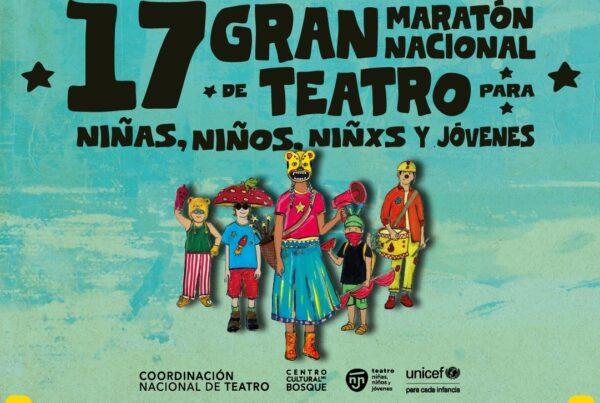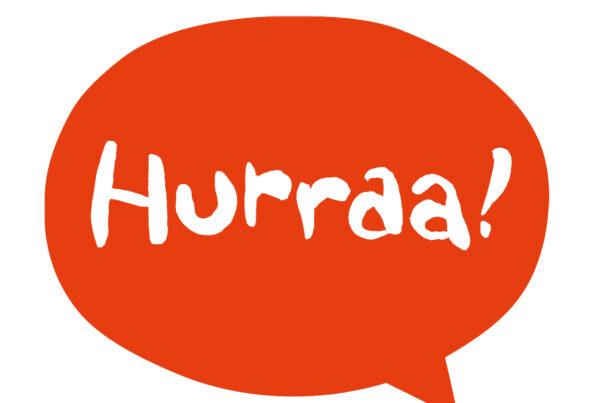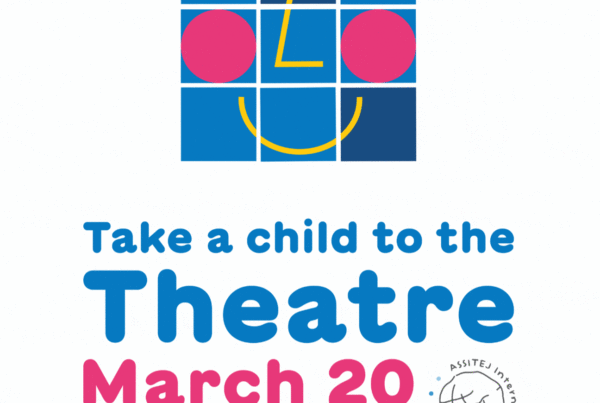Children cannot take themselves to the theatre. The World Day of Theatre for Children and Young People celebrated every 20th March is a call to recognise the dependence of children on the adults around them if they are to have critical exposure to the arts in general, and to live theatre in particular. For this reason we say “Take a Child to the Theatre Today”.
Theatre happens in a particular time and space, and is by its very nature fleeting and of that particular moment. It is about the invisible relationships created in this moment, which unlock the human heart, planting seeds of empathy and growing tendrils of curiosity and enquiry that may impact on the development of the entire human being, and of their future course in life.
But connecting with theatre, appreciating theatre, can require effort from the audience involved. It is not a passive, receptive function. It is an activity that demands attention, engagement, openness, curiosity and critical thinking. It demands total engagement – not just intellectual engagement, but also physical, emotional and some would say spiritual. When this full engagement is taking place, multiple senses are being stimulated simultaneously, and the experience is rich, powerful and transformative.
Many parents understand the value of reading – whether or not they are readers themselves. They understand its functional value and recognise its capacity to be a passport through the real world into new realms for children and young people. They understand that reading is not something to be given up on, even though the initial stages can be demanding and frustrating. Rather, it is a key which can unlock entire worlds for young people, that a thought experienced in a book can translate into a direction for life… They are keen to seek out the book which will capture the child’s imagination sufficiently to carry them through the hurdle of learning to read. Why is that same recognition not given to the experience of reading theatre?
Theatre is not something to give up on after one poor experience. It is not something to be forced into a particular mould or subject matter. It can be hard work and frustrating, as well as pleasurable and engaging. It can take time for the ‘reader’ of theatre to fully appreciate the multiple levels of signs, feelings and meanings that are presented. But as a distilled experience, it allows the audience the opportunity to “truly” see what is there, with fresh eyes, to see the object, person, relationship, signs in a new way, and to discover and interpret their meaning for themselves.
Theatre is, a unique experience of personal meaning-making for children, which requires engagement, and the quality of this engagement will improve with time as children and young people become more attuned to the experience of watching a play.
The idea of theatrical literacy is not a glib one – it is an important and universal window into reading and making sense of the world. And how urgently are these skills needed in a world which seems increasingly hostile to children, and where so many children are disempowered and neglected as a result of poverty, war, conflict and displacement. These children must become our collective responsibility.
The challenge to artists and to arts activists is to ensure that all adults with the power to #Takeachildtothetheatretoday understand their responsibility to the child who might never encounter live theatre without their intervention and work as hard for all children to be theatrically literate as they do for them to be able to read and write.
Yvette Hardie
President of ASSITEJ







One Comment